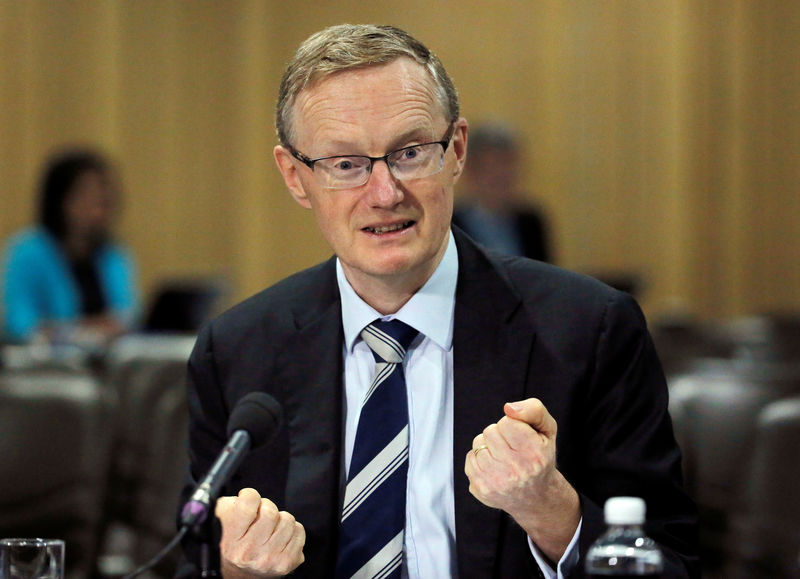LONDON (Reuters) - A report from a central bank-led global committee has defended the use of crisis-fighting tools such as negative interest rates and large-scale asset purchases, saying the benefits have outweighed the side effects.
The study from the Committee on the Global Financial System Committee (CGFS) was a broad analysis, but is likely to attract considerable attention in Europe following growing criticism about the use of such measures.
As well as sub-zero rates and trillions worth of bond buying, central banks have flooded their economies with ultra-cheap funding driving down borrowing costs but also putting pressure on savers and banks' margins.
"On balance, unconventional monetary policy tools (UMPTs) helped the central banks that used them address the circumstances presented by the crisis and the ensuing economic downturn," said Philip Lowe, chair of the CGFS and governor of the Reserve Bank of Australia.
Side effects, such as disincentives to private sector deleveraging and spillovers to other countries have happened Lowe added, but were not considered "sufficiently strong to reverse the benefits of UMPTs".
The report was prepared by a working group led by a New York Fed official Simon Potter and European Central Bank governor Mario Draghi's former adviser, Frank Smets, who now heads the bank's economics department.
More than a third of the ECB's policymakers last month opposed restarting asset purchases, while on Friday six former members slammed the bank's policies under Draghi as unsuccessful and for potentially sowing the seeds of the next crisis.
The CGFS report, which was published under the umbrella of the Bank for International Settlements, said "so far, the side effects (of unconventional measures) have been contained and did not compromise the overall effectiveness of the interventions".
It was also likely that they would need to be used again in future in the event of an economic slump, spillovers from abroad to small open economies or disruptions in financial markets that impair the transmission of monetary policy.
A number of trends also pointed to interest rates more regularly hitting the "effective lower bound", where they cannot be cut any further. That would again call for unconventional tools to be used.
"Of course, most of the central banks that implemented UMPTs have yet to unwind them, given the need for continued stimulus. This means that a complete assessment of their effects can only be made at a later stage," the report said.
A parallel report that looked at the huge expansion of central bank balances sheets as a result of the crisis fighting efforts, also laid out a 9-point check list of "best practices" for using of unconventional measures.
It included a gradual pace of asset purchases relative to the overall amount, planning to avoid a scarcity of bonds, lending back out purchased bonds, predicable measures both when using and unwinding measures and staying flexible.
Graphic: Global interest rates - https://fingfx.thomsonreuters.com/gfx/mkt/12/6985/6916/Pasted%20Image.jpg
Graphic: Central bank balance sheets - https://fingfx.thomsonreuters.com/gfx/mkt/12/6989/6920/Pasted%20Image.jpg
